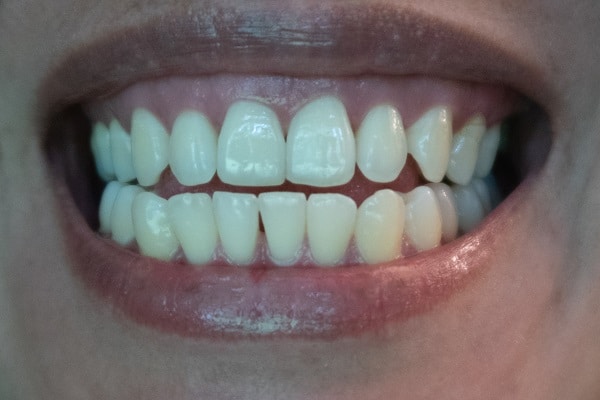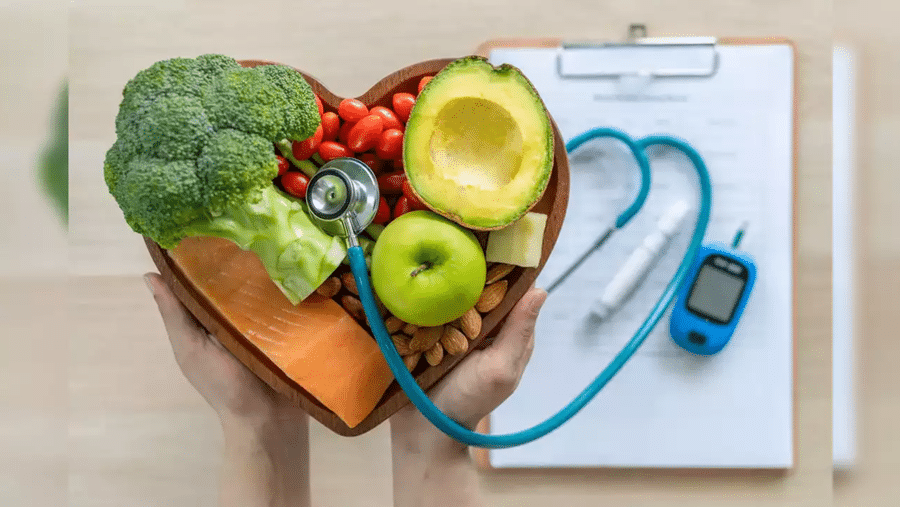Getting alerts about your high blood sugar or glucose levels may not be a bad idea considering you need to keep your blood sugar levels under control. Natural indicators on your body are the best sign that will allow you to keep your sugar levels checked.
You might wonder why there are portable blood-checking machines now, so why should you bother about natural signs that your body projects? The answer to this is straightforward: it has to do with reducing medical expenses like strips and needles for portable sugar-check devices. Furthermore, natural signs help you understand your body better, and you can take action to maintain a healthy lifestyle.
Contents
- 1 Why Do You Need To Check For High Glucose Or Sugar Signs?
- 2 Fatigue & Sleepiness
- 3 Frequent Urination & Dehydration
- 4 Headaches & Dizziness
- 5 Twitchy Fingers and Muscle Cramps
- 6 Blurred Vision Just Like Looking Into A Dense Glass
- 7 Nausea And Vomiting Sensation Or Reverse Peristalsis
- 8 Dental Issues
- 9 Yeast Infections
- 10 The Lowered Healing Ability Of The Body
Why Do You Need To Check For High Glucose Or Sugar Signs?
More than 30 million individuals living in the US alone have diabetes. A disease that is a silent killer. The main causes of out-of-control insulin resistance and disability of the pancreas not producing insulin. Some are adamant and stubborn that they wouldn’t go about checking if they have diabetes or not. In this case, one cannot force a person to give out blood for testing instead look for signs in the body.
A high blood sugar level can cause weakness, high blood pressure, abscesses in different parts of the body, and most of all, it can affect your kidneys. Therefore, it is necessary to look out for those signs in your body. These are natural signs that indicate high blood or glucose levels.
Fatigue & Sleepiness

Fatigue is one of the common signs of high blood sugar levels. Indeed, fatigue cannot be a common indication of high blood sugar, but the frequent feeling of exhaustion or fatigue can be a sign. You can relate this feeling post-lunch or post-dinner, where after consumption of carbs, you get a feeling of hitting the bed. Furthermore, frequent feelings of sleepiness and tiredness can also point towards a high glucose level. Of course, taking a nap is healthy but regularly feeling sleepy at random hours of the day is definitely a sign, and you should seek medical help.
Frequent Urination & Dehydration

Your kidneys are smarter than you think. Your kidneys function like a dam that rejects excessive sugar or an abnormal quantity of glucose and sugar. While the kidneys function for the discarding of sugar, water tends to be discarded as well.
Due to this, your body gets an urge for frequent urination when your sugar levels are out of control. Furthermore, your body gets dehydrated, and there is also a frequent urge to drink water. Therefore, in summary, as the sugar is discarded, water gets ejected out, and the body is left dehydrated, creating an urge for drinking water, making you feel thirsty. You need to definitely take the sugar test when you face frequent urges of urination.
Headaches & Dizziness

Headaches are one of the most common symptoms and can indicate diseases of low to high severity. But headaches caused due to high sugar levels are related to dehydration of the body. As discussed previously, frequent urination leads to cyclical dehydration. Due to this, one can get headaches frequently as dehydration can shrink your brain due to fluid loss. Therefore, you don’t need to be alarmed when you get a headache, but frequent headaches are something that you need to check out.
Twitchy Fingers and Muscle Cramps

Hyperglycemia or high blood sugar can affect the nerves in your body, especially the ones around your hands and legs. In extreme cases, nerve damage called neuropathy can take place. The early signs include a twitching sensation. You can notice your toes or fingers twitch, which can be an indication to get your sugar level in control.
The motor nerves tend to be dysfunctional over time when care is not taken. The nerve connection to the muscles starts weakening, and therefore you can get a tingling sensation in your legs and hands. Furthermore, this weakness can cause muscle cramps inhibiting your daily activities. Other signs include burning sensation and numbness in arms and legs.
Blurred Vision Just Like Looking Into A Dense Glass

Have you ever looked into a sugar solution kept in a beaker? The refracted images seem to be blurred and distorted. When blood sugar levels are high in the body, your vision blurs, just like viewing through a sugar solution. This is because sugar gets trapped into the eye lens, giving you blurry vision. When not in check, this can give you a cataract. Although the initial stages are temporary, the problem can get permanent over time. Therefore, it is necessary to keep these signs in check.
Nausea And Vomiting Sensation Or Reverse Peristalsis

This sign can be due to Diabetes Ketoacidosis, abbreviated as DKA. DKA can cause stomach aches, pale skin, bad breath, and concentration problems. However, DKA is common in type 1 diabetics. This condition occurs as the liver is unable to use sugar in the body due to generating energy. Due to lower insulin levels in the body, sugar breakdown is not possible, and so the liver doesn’t get the sugar for energy. Instead, the liver breaks down stored fat generating high ketone levels. In excess, this can be toxic for the body turning your blood acidic. Thus, the symptom can be dangerous, and one should seek immediate medical attention.
Dental Issues

Your mouth is not spared as well from the wraith of high glucose levels. Glucose is present in your saliva, promoting the growth of harmful bacteria. This also causes plaques in your tooth. Common dental problems like tooth decay, cavity problems are common signs of high glucose levels.
Yeast Infections

Hyperglycemia can reduce the body’s immune responses, giving scope for diseases and viruses to attach to the body. Furthermore, yeast infections are quite common in women with diabetes. During periods, blood outflux can be a breeding ground for bacteria as bacteria and fungi are sugar lovers, and they thrive on it. Urinary Tract infections or UTI are quite common in diabetes due to this very reason.
The Lowered Healing Ability Of The Body
High sugar in the blood can make the blood highly viscous and inhibit its ability to flow faster, impairing circulation. Therefore, wounds or sores are difficult to heal. This is because the blood is unable to provide prothrombin at a faster face inhibiting the clogging mechanism. Wounds can be subjected to infection, as the bleeding can give scope to bacterial growth and can cause sepsis. Therefore, the wound of a diabetic patient should be cleaned frequently. When you realize your body doesn’t heal faster or cuts take time to heal, consider making a doctor’s appointment.
Psychological Effects And Conclusion
Frequent feelings of irritation, uncontrollable anger, and frustration are the psychological signs you need to look out for. Although there are any signs to look out for, always consult with a physician if you suspect that you have diabetes. Do not be alarmed, as early detection can help you control your sugar well, just like any normal person.


